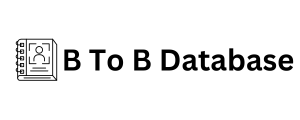Special Database Not for Everyone
In today’s data-driven world, databases play a vital role in storing, organizing, and retrieving data. However, not all databases are created equal, and some are not meant for everyone. These databases are known as special databases and are designed to cater to specific needs and requirements. In this article, we will discuss what special databases are, their benefits, and why they are not for everyone.
Special databases are databases that are tailored
A meet specific needs and requirements. They are designed to handle specific types of data, provide customized interfaces, and support unique features that are not available in general-purpose databases. These databases are often used by large organizations, government agencies, and specialized industries such as healthcare, finance, and telecommunications.
One of the key benefits of special databases is that they are highly customizable. This means that they can be tailored to meet the specific needs of an organization or industry. For example, a healthcare database may be designed to store and retrieve medical records, while a financial database may be designed to handle financial transactions and records.
Another benefit of special databases is that they are often Database more secure than general-purpose databases. Since they are designed for specific use cases, they can be configured to meet the highest levels of security standards. This is especially important for industries that deal with sensitive information such as healthcare and finance.
However, despite their benefits, special databases are not for everyone. They are often complex and require specialized knowledge to set up and maintain. This means that they may not be suitable for small businesses or individuals who do not have the resources or expertise to manage them.
Moreover, special databases are often expensive
A set up and maintain. Since they require specialized knowledge and expertise, they often come with a higher price tag than general-purpose databases. This can be a significant barrier to entry for small businesses or individuals who are on a tight budget.
Another drawback of special databases is that they may be limited in terms of scalability. Since they are designed for specific use cases, they may not be able to handle large amounts of data or accommodate changes in data requirements. This can be a significant challenge for organizations that need to scale their operations rapidly.
In conclusion, special databases are databases that are tailored to meet specific needs and requirements. They offer numerous benefits such as high customization, security, and B to B Database specialized features. However, they are not for everyone due to their complexity, cost, and scalability limitations. Organizations and industries that require specialized databases should carefully consider their needs and resources before investing in them. For small businesses or individuals, general-purpose databases may be a more suitable option.

